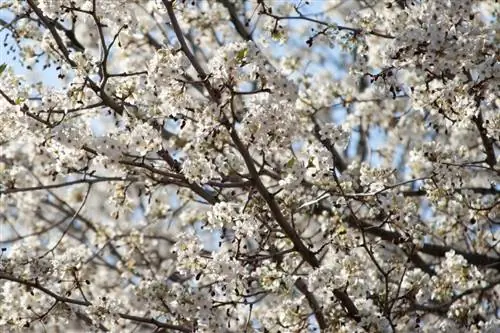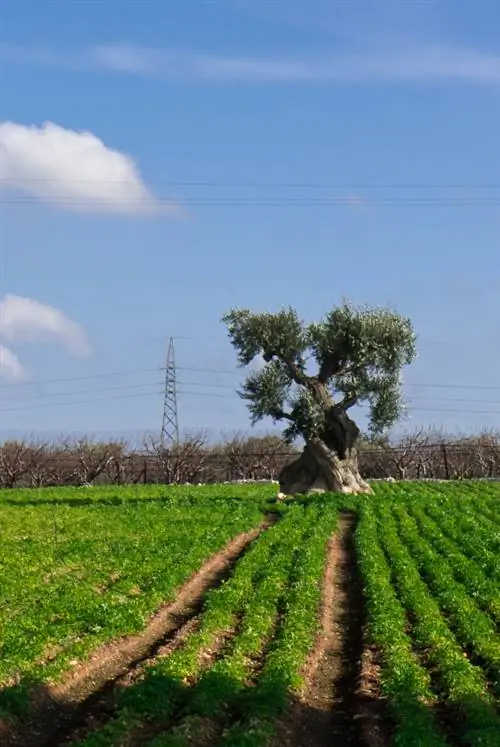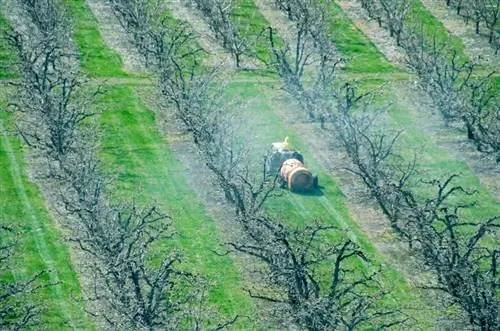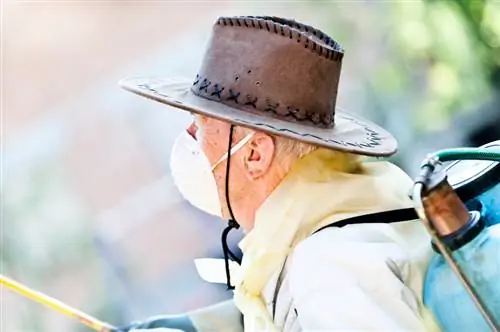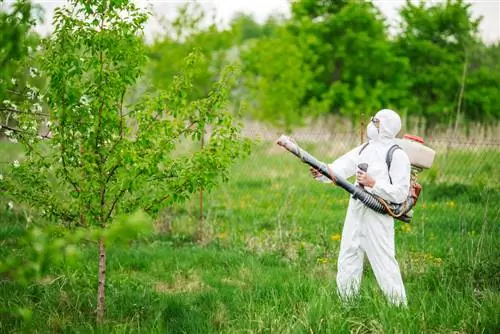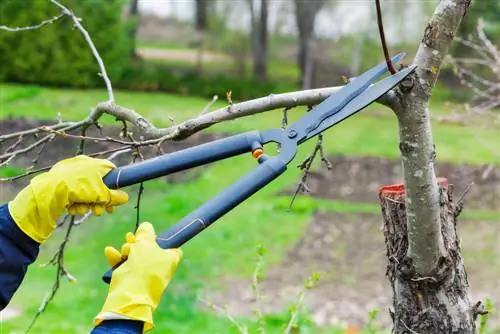- Author admin [email protected].
- Public 2023-12-16 16:46.
- Last modified 2025-06-01 06:02.
Mushrooms, aphids, harmful insects - the list of enemies of the pear tree is long. Sometimes the only thing that helps is spraying the tree to combat pests and other pathogens. Try biological means first.
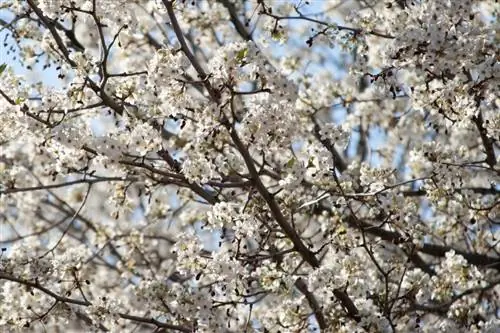
How and when should you spray a pear tree?
To spray a pear tree against pests and diseases, it is best to use organic products such as nettle broth, birch leaf broth, field horsetail decoction or tobacco decoction. Spray before flowering on a dry, windless day and wear appropriate protective clothing.
When does injection help?
If the aphids become overwhelming or the fruit on the tree is rotting, it can help to treat the tree with biological sprays.
Plant broths have proven to work well. Nettle broth or tobacco decoction are used against aphids. Birch leaf broth and field horsetail decoction work against fungal infestation.
Spraying does not make sense for all pear tree diseases. This measure is pointless with the pear grid. The only thing left to do here is to cut off the affected parts and wait for the leaves to fall in autumn. In addition, all juniper bushes nearby must go.
Plant broths and plant decoctions for spraying the pear tree
If you need to spray your pear tree, try organic sprays first. The following broths and decoctions are particularly helpful:
- Nettle broth
- Birch leaf broth
- Field horsetail brew
- Tobacco brew
The basic recipe for plant broths is always the same. Pour ten liters of water over one kilo of fresh herb.
Let the mixture stand, covered, for a few hours to a day. Strain the broth, extend it with water and fill the garden sprayer with it.
The right time to squirt
The time before flowering is best for spraying. If the pest infestation occurs later, it is already too late for this measure.
If you spray your tree after flowering, use only organic products. Chemical agents remain in the fruits and make them inedible.
Choose a dry day that is neither too sunny nor too windy.
Wear gloves, hat and safety glasses
On windy days, make sure you always direct the jet in the direction of the wind. Otherwise you run the risk of fogging yourself up.
Ensure good protection of eyes, head and hands when working with chemical agents.
Tips & Tricks
Sometimes the pear tree is so badly affected by fungi or pests that only spraying with chemical agents helps. Look for products that don't harm beneficial insects like bees. When spraying the tree, follow the manufacturer's instructions.

